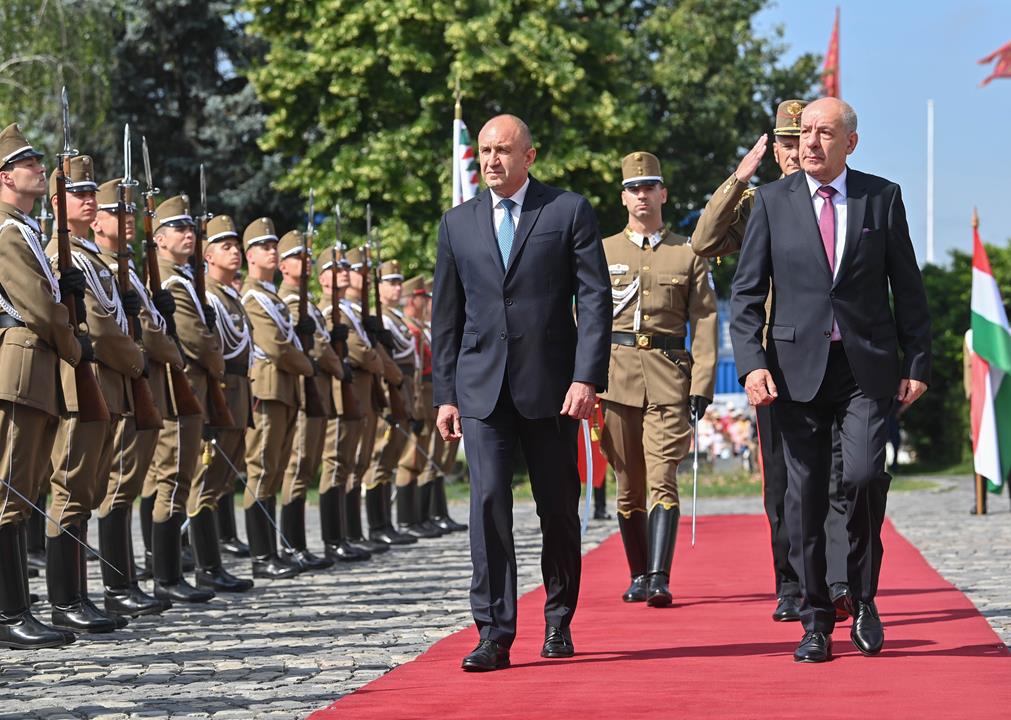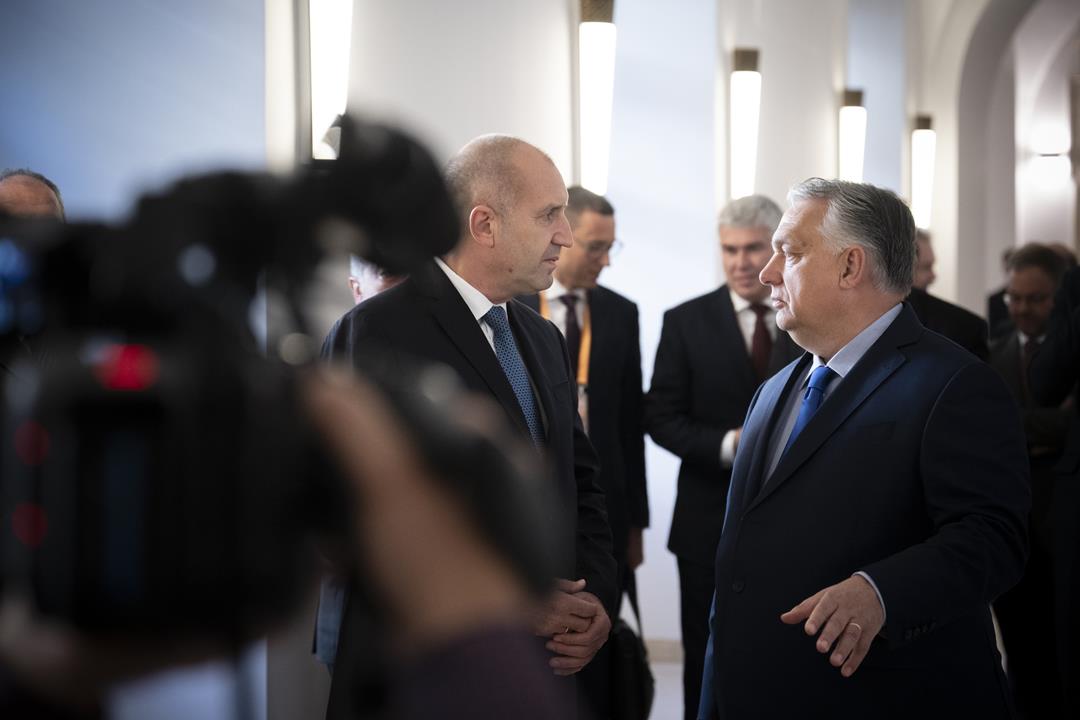Change language:
PHOTOS: Bulgarian Cultural and Educational Centre inaugurated in Budapest

Hungarians and Bulgarians are bound by a shared destiny and by friendship, President Tamás Sulyok said after his talks with Rumen Radev, his Bulgarian counterpart, in Budapest on Saturday.
Topics discussed by the two presidents included the issue of ethnic minorities and bilateral economic relations, with special regard to energy security, Sulyok was quoted as saying in a press statement.
Sulyok and his Bulgarian counterpart were in agreement that illegal migration must be stopped and its causes must be addressed rather than managing the symptoms. He noted that dozens of Hungarian police officers were serving in Bulgaria in the framework of border police cooperation.
They also agreed that the war in Ukraine must be resolved through diplomatic efforts, and urged a ceasefire and a just and sustainable peace.
Sulyok said Hungary remained committed to the full accession of Bulgaria and Romania to the European Union’s passport-free Schengen zone.
He said ethnic minorities were an important link in Hungary’s relations and the country’s Bulgarian minority is represented by a national minority advocate in the Hungarian National Assembly.

EU accession of Western Balkans states a priority
Sulyok noted that promoting the EU accession of the countries of the Western Balkans was among the priorities of Hungary’s upcoming presidency of the Council of the EU.
Radev said the two countries faced multiple challenges, “so we need even closer cooperation between Bulgaria and Hungary to bridge these”.
He said the discussions had touched on the issues of trade, finance and tourism, but there were many other opportunities for cooperation. He cited as examples sectors with high value-added such as the defence sector.
He said energy security was of key importance and pledged that Bulgaria would remain a stable partner in gas transit deliveries in future.
Hungary’s ethnic Bulgarian community vivid
Later on Saturday, the two presidents attended the inauguration and consecration of the Bulgarian Cultural and Educational Centre in Budapest’s 9th district.
In his address at the ceremony, Sulyok said the inauguration of the centre was about the vitality of Hungary’s ethnic Bulgarian community. The Bulgarian community had a lot to draw on, he said, adding that their culture was a combination of accumulated knowledge and preserved traditions.
Hungarians and Bulgarians, he said, were bound by the similarities in their history and by the Danube River, but even more importantly, by friendship, shared values, and the appreciation of each other’s culture.
Hungary, Bulgaria’s alliance extends to energy supply, says minister
Hungary and Bulgaria have a close alliance on the security of natural gas supply and the use of nuclear energy as well, Péter Szijjártó, the minister of foreign affairs and trade, said in Budapest on Saturday, adding that this contributed greatly to Hungary’s long-term energy security.
According to a foreign ministry statement, Szijjártó said he had held talks with Bulgarian Energy Minister Vladimir Malinov, who is accompanying President Rumen Radev on his official visit to Budapest.
Most of the natural gas Hungary imports is delivered via Bulgaria through the TurkStream pipeline which runs from Russia to Hungary via Turkiye, Bulgaria and Serbia, Szijjártó noted.
Hungary received 5.6 billion cubic metres of gas via this delivery route last year, which accounts for around 65 percent of the country’s annual consumption, the minister said.
“Therefore we clearly have an interest in the TurkStream gas pipeline remaining a secure and reliable route for gas deliveries to Hungary,” he said.
“Bulgaria has once again guaranteed that we can continue to rely on them and their fair approach in the coming period, and that the TurkStream gas pipeline will continue to function as one of Europe’s most secure and predictable routes,” he added.
Nuclear cooperation
Hungary has received over 2.5 billion cubic metres of gas via TurkStream so far this year, and this volume is expected to more than double by the end of the year, Szijjártó said.
Meanwhile, Szijjártó highlighted Hungary and Bulgaria’s cooperation in the area of nuclear energy, noting that nuclear power accounted for a significant share of both countries’ energy supply.
“Bulgaria also has a nuclear power plant and it is planning to increase the long-term share of nuclear energy in its energy mix, as are we,” he said.
“The expansion of the Paks plant is progressing well, with 17,000 out of 75,000 piles already in place where the two new reactors will be, and the first concrete remains on track to be poured by the end of the year,” Szijjártó said. “And that’ll be an important milestone in the construction that will be key in terms of the schedule for the coming period.”
He emphasised that Hungary and Bulgaria rejected any negative discrimination against nuclear energy.
Hungary, he added, considered any attempts to undermine its nuclear cooperation or initiatives aimed at restricting the use of nuclear energy an attack on its energy security.
PM Orbán held talks with Bulgarian president

- Devastating news: life expectancy at birth in Hungary low, Romania may soon precede Hungary
- Hungary falls behind Austria, competes with Bulgaria to avoid last place







